Born: Herzebrock, Germany, 13 September 1910
Occupation in country of origin: Furniture making
Arrived in Britain as a refugee from Germany, 3 April 1939
Other family members
Irmgard Brill (geboren Levy) - born Rinteln, Germany, 8th April 1911 Occupation: housewife Arrived in Britain as a refugee from Germany, June 1939 May have been resident at Kitchener camp at the outbreak of war
Winston Jonas Brill - born in England, 16th June 1939 (while Walter was resident in Kitchener camp) Occupation: Professor of microbiology, founder of a biotechnology company, consultant and speaker on creativity and innovation. Winston retired in 2003 and currently lives in Redmond, Washington, USA May have been resident at Kitchener camp at the outbreak of war
Documents
Male enemy alien - Exemption from internment - Refugee Surname: Brill Forename: Walter Alias: - Date and place of birth: 13/09/1910 in Herzebrock Nationality: German Police Regn. Cert. No.: 710 485 Home Office ref: C 476 Address: Kitchener camp, Richborough, Sandwich, Kent Normal occupation: Joiner Present occupation: Name and address of employer: - Decision of tribunal: Exempted "C" & 9A Date 05.10.1939 Whether exempted from Article 6(A): Yes Whether desires to be repatriated: No Tribunal District: Richborough Camp Tribunal 1
Source: National Archives, Home Office: Aliens Department: Internees Index, 1939-1947.
Editor’s note: We are not allowed to reproduce National Archives (UK) images, but we are permitted to reproduce the material from them, as shown above.
To view the following documents, please click on them and they will open in enlarged full form.
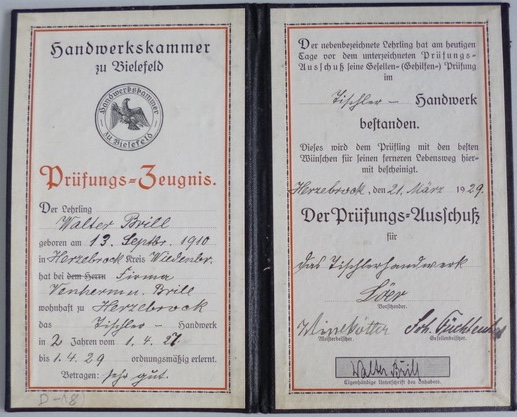
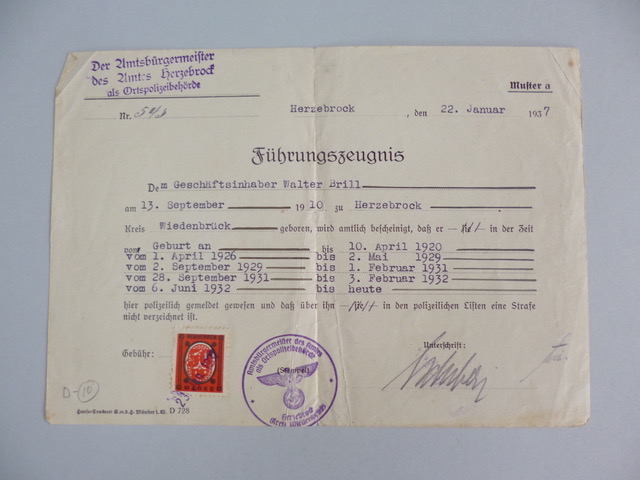
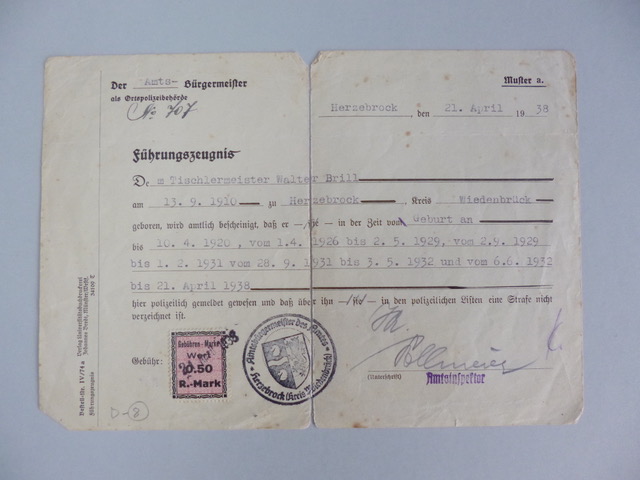
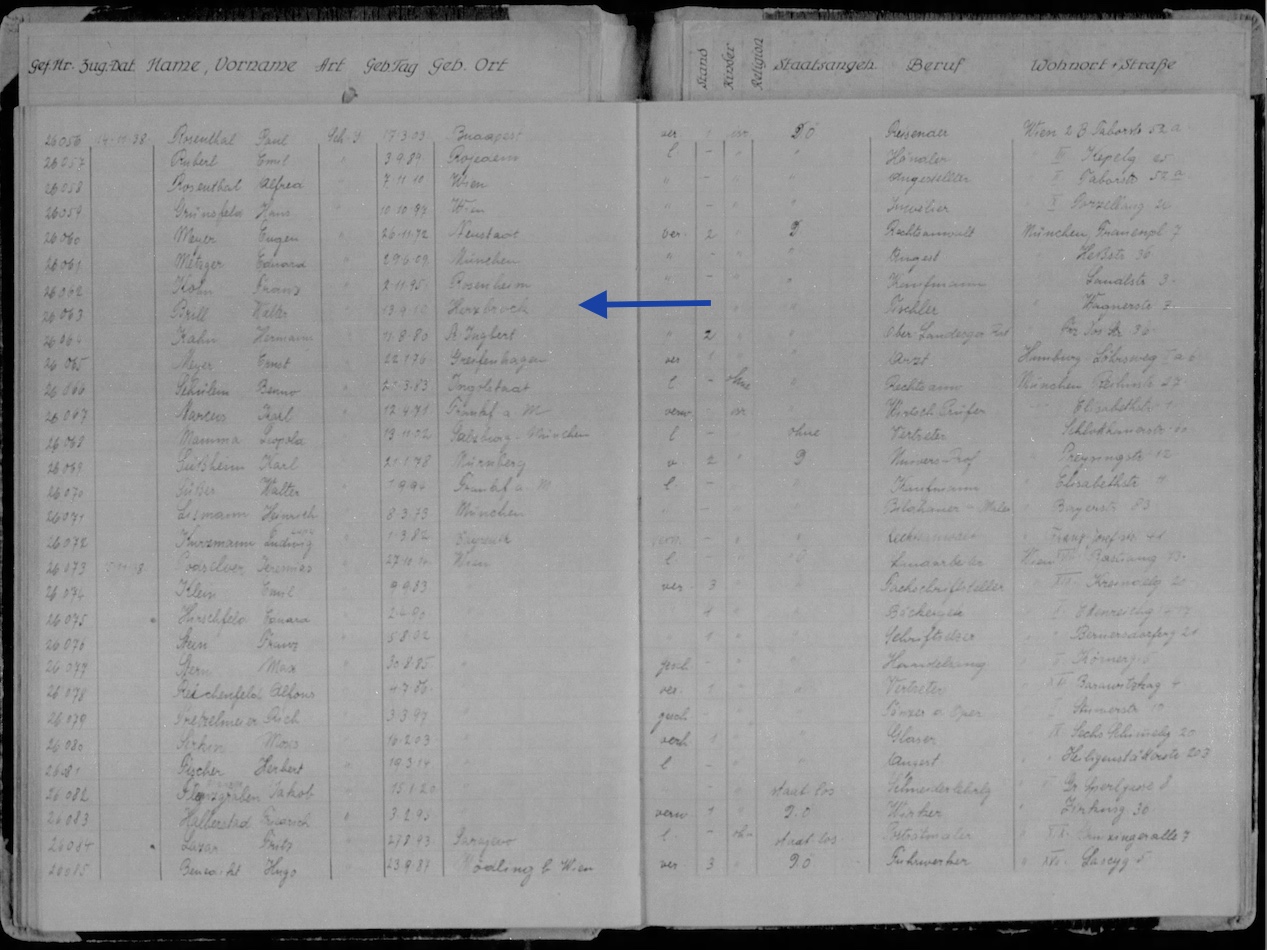
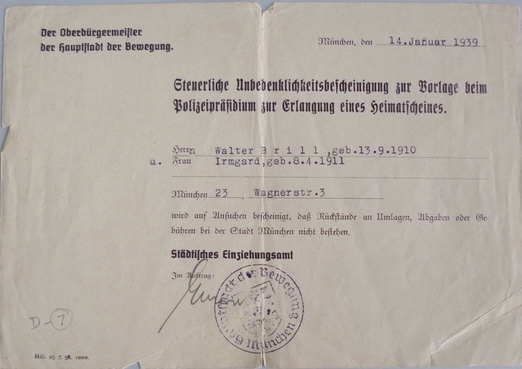
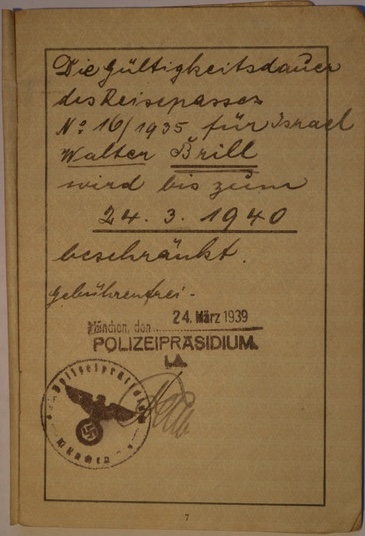
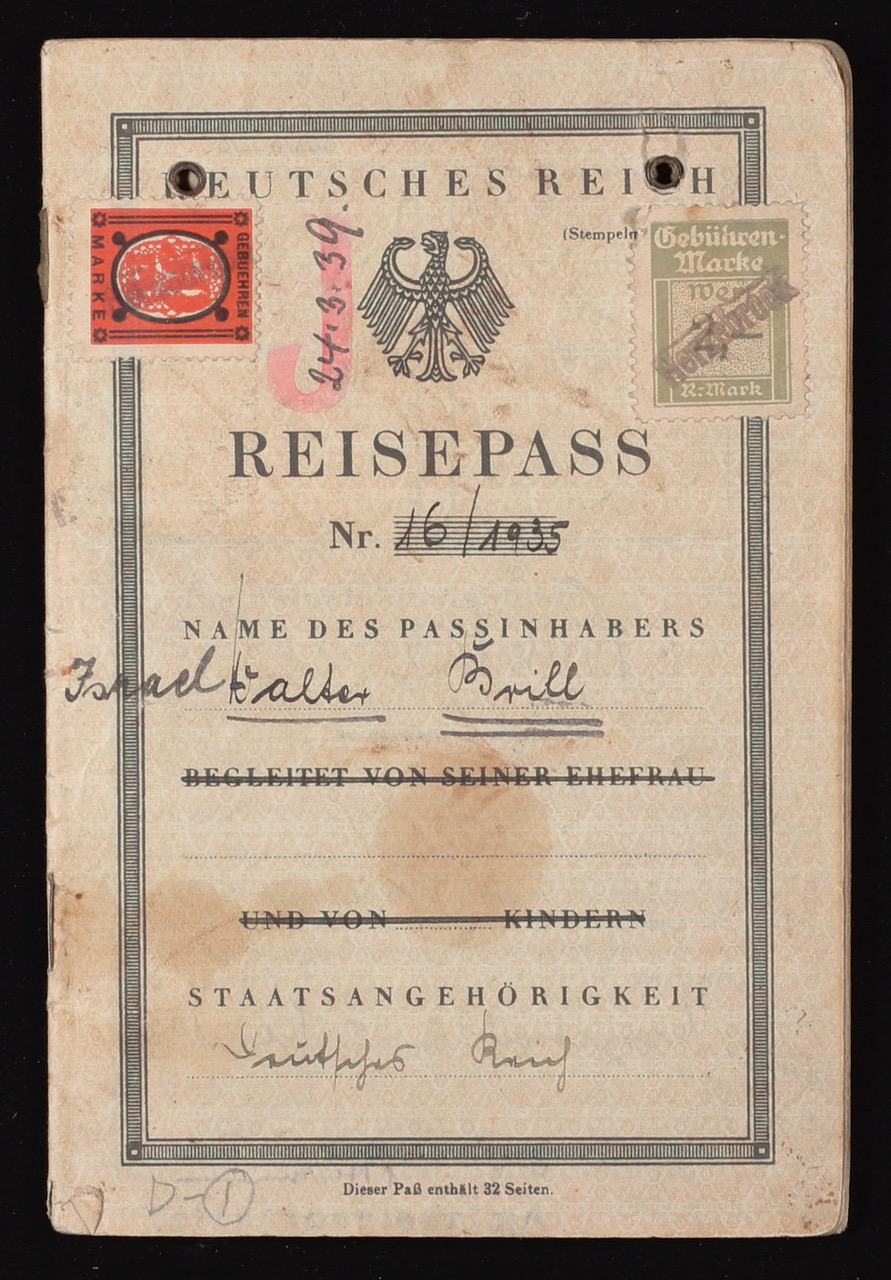
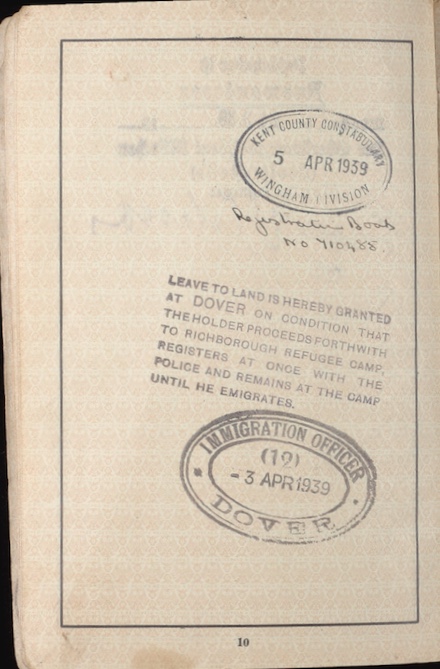
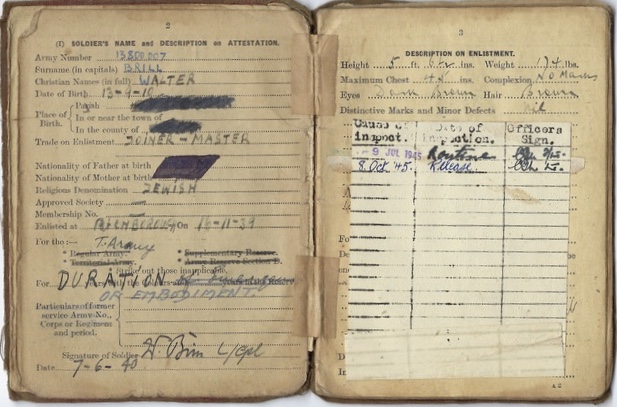
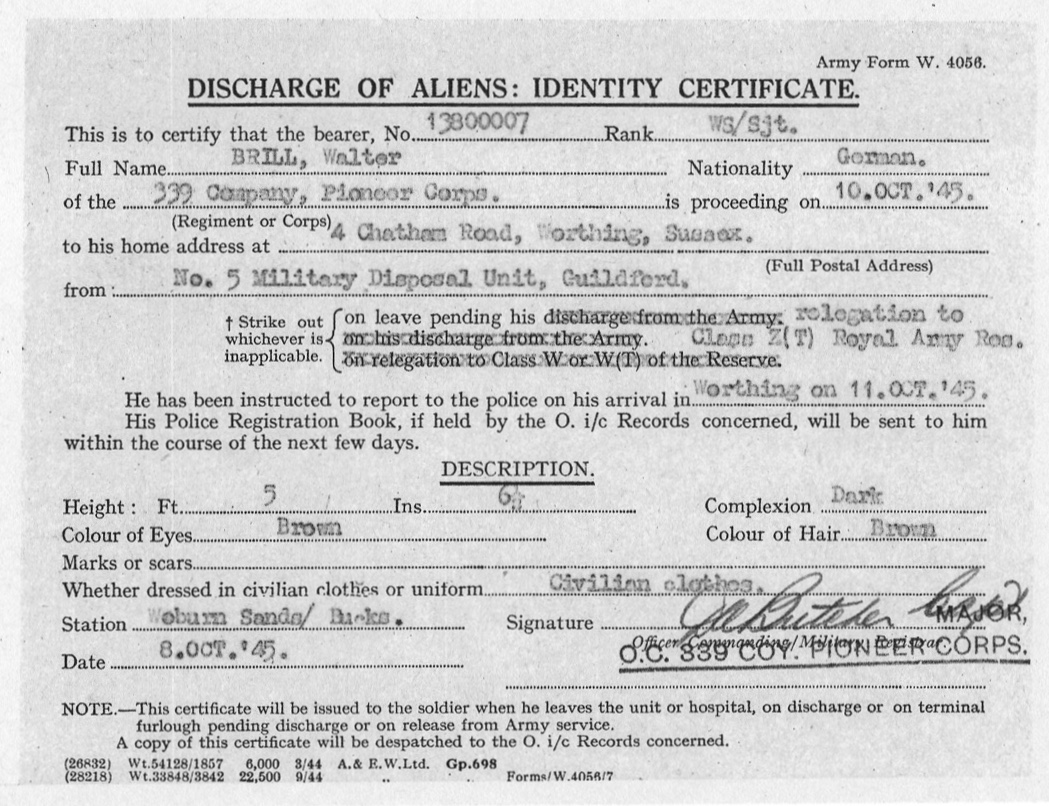
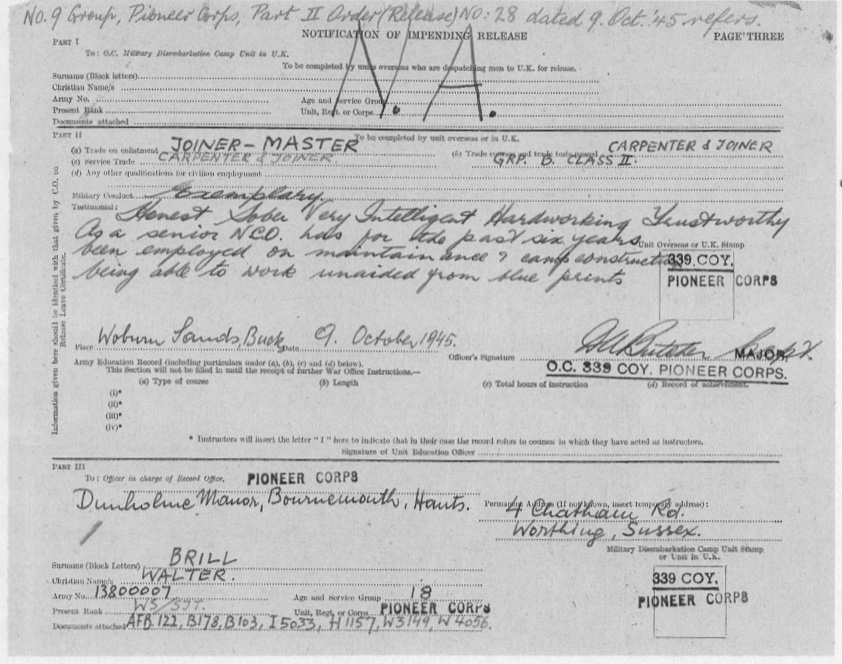
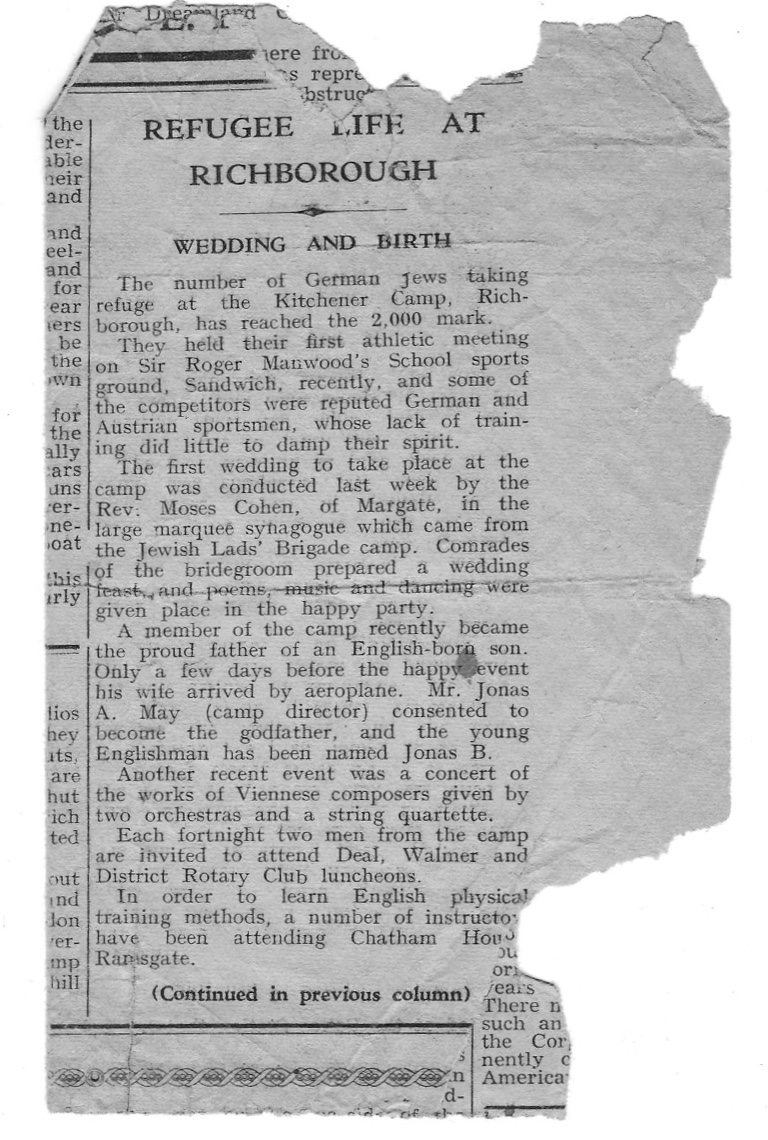
The Leo Baeck Institute’s digital archive holds both an audio interview with Walter Brill and a transcript of the interview. Some of the interview transcript is in German part way through (pages 22 to 25), but the vast majority is in English. It is an extraordinary account, covering pre-war Germany to the present day of the interview in the 1970s.
Unfortunately, because of the way the interview has been digitised and catalogued, we are unable to provide a link to it that does not time out. If you go to the Leo Baeck digital archive and type in ‘Walter Brill’, however, it will take you to the interview and a typescript of the interview.
Not everyone will be able to view the entire document, so it is worthwhile noting here one or two exceptional statements as regards Kitchener camp specifically. If you can, we do encourage you to go to the Leo Baeck website and listen to (or read) the entire interview.
To view the following documents, please click on them and they will open in enlarged full form.
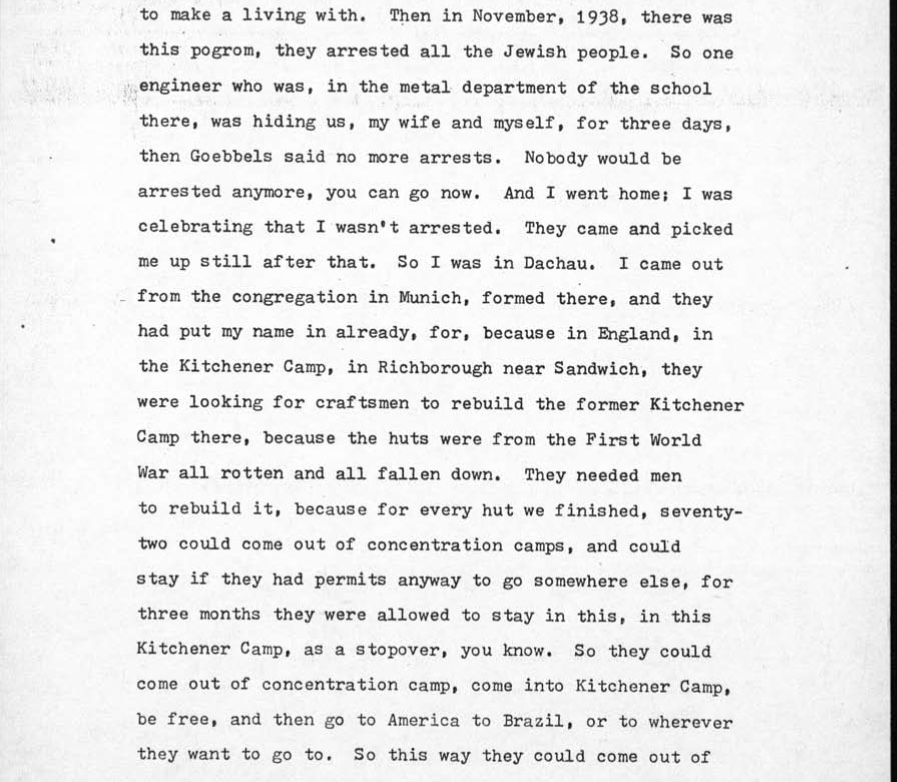
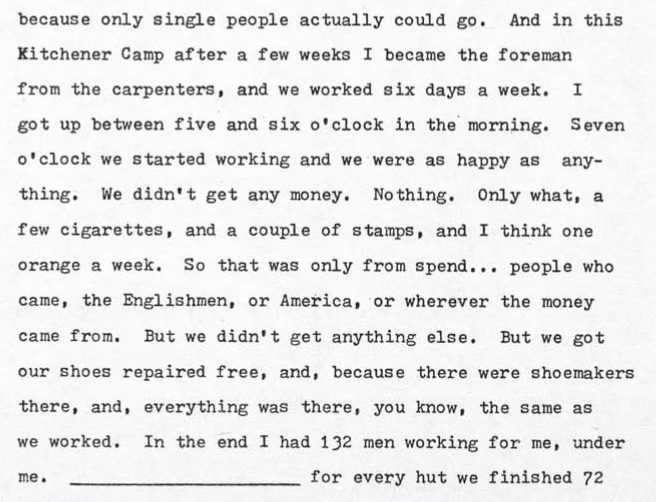
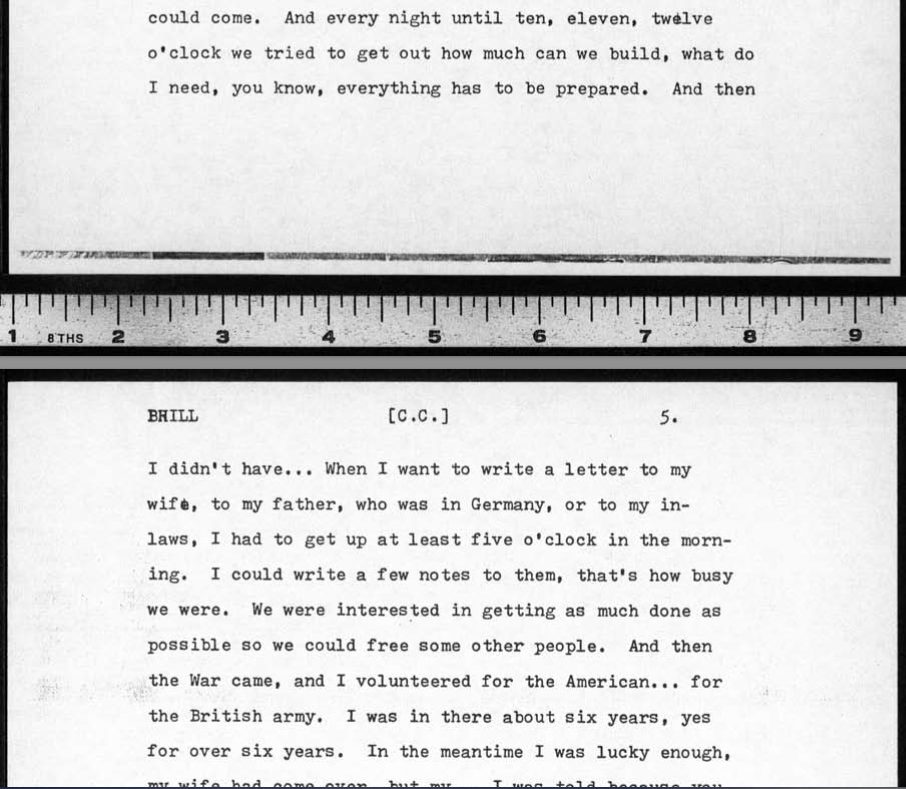
Letters
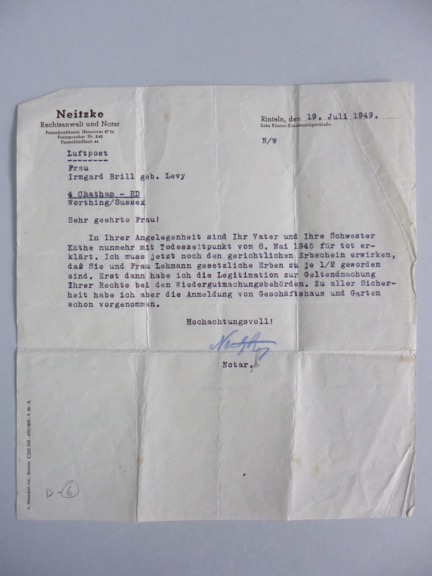
19th July 1949 Airmail Mrs Irmgard Brill née Levy 4 Chatham Road Worthing Sussex Dear Madam, Regarding your case, your father and sister, Käthe, are now declared dead with the timing of death of 8th May, 1945. I must still obtain the judicial succession that you and Frau Lehmann have become the legal heirs, each 50/50. Only then do I have the legitimacy to make the assertion of your rights with the reparations authorities. In all certainty, I have however already carried out the registration of the commercial building and garden. Sincerely, Notary Translation submitted by a Kitchener descendant, 2017
Memories
The Brill family history is viewable in two online archives.
Walter Brill was interviewed about his life in pre-War Germany, as a Kitchener refugee and then soldier in Britain, and then about his life as an immigrant in the USA. This extensive interview is available in the Leo Baeck digital online archive, searchable under ‘Walter Brill’.
There is also a blog page about the Brill family history on the Jewish Museum Berlin website, currently available at the following link:
I have provided a PDF here in case their link becomes invalid over time:
Winston is not sure whether Irmgard was ever resident in Kitchener camp, but it is possible, given the date of her arrival in Britain. As Clare Ungerson notes in her book, Four thousand lives (2014), “Very suddenly, from 5 September onwards, there were some in the camp – about 200 of them and all wives of the camp men. … some of the wives were even able to bring their children into the camp and whole families were reunited in one place” (p. 142).
In 1949 the family emigrated to the USA on the SS Ile de France. Irmgard’s application for herself and her three sons for US citizenship is attached below.
Information submitted by Winston Brill and family, in memory of Walter and Irmgard Brill, 2017.
“In rummaging through a drawer of old CDs I came across an amazing coincidence.
Here’s the background: After my mother, Irmgard, died, my father lived for his last eight years with a Jewish-German woman, Ruth Carter, who had lost her husband. I knew her fairly well and knew that she and my parents had been friends for years. But I knew very little about her background since I wasn’t that interested and never asked.
But, an hour ago, I found a DVD of Ruth Carter giving an hour-long interview with a local Jewish organization – “Daughters of Israel” – which interviewed Ruth on 10 December 2009.
Ruth married in Germany but was separated from her husband during the war when he went to Kitchener camp in May 1939. In Kitchener, he befriended my father Walter. He was in the British army for six years. He changed his name in England from Julius SHARLINSKY (that’s how it was pronounced by Ruth, but I do not know how it was spelled) to John Carter. So that friendship in Kitchener led to both my family and theirs living on the same street in Newark, New Jersey, USA, starting around 1950, for three years. Then both families moved to other places in New Jersey. The families remained close. Ruth had one child who died at age three. So that meeting of the two men in Kitchener led to my father living his last eight years with the wife of his old Kitchener pal.
I was hoping to find a Julius Sharlinsky (spelling?) on your site’s list of Kitchenerites, but couldn’t find anything that matched. I was so disappointed.
Ruth made the following recording when she was 93 years old, about seven or eight years ago. I don’t know of anyone who would have knowledge of her life, or the spelling of her husband’s name. During the war, she was hiding from the Nazis, then Russians, in Germany and Poland. She saw her husband only after the war, when she moved to England for 2 years, and then to the USA.”
Winston Brill
Editor’s note: we have since managed to find out that this man’s name was in fact Julius Czarlinski; we have now been in touch with the family through Winston Brill and have created pages for Julius.
Photographs
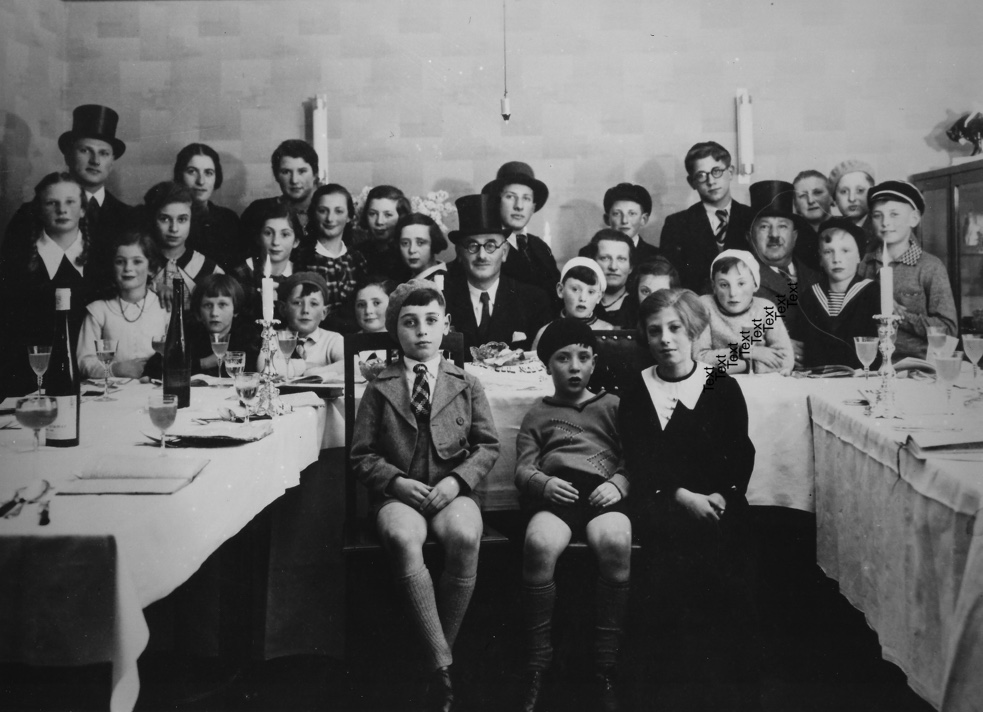
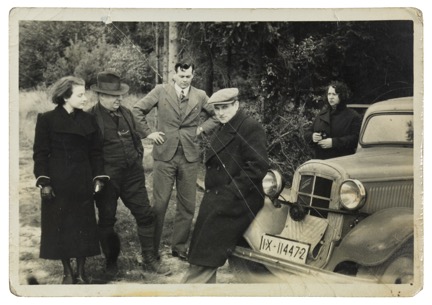
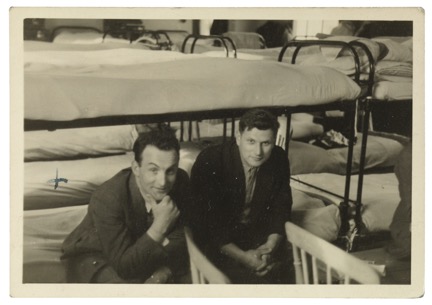
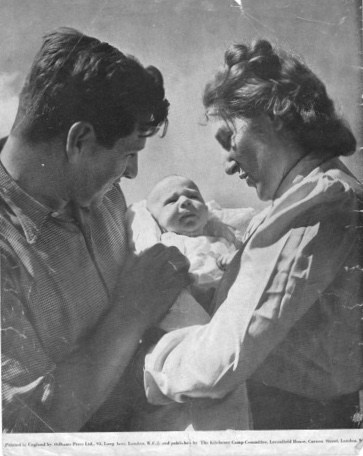
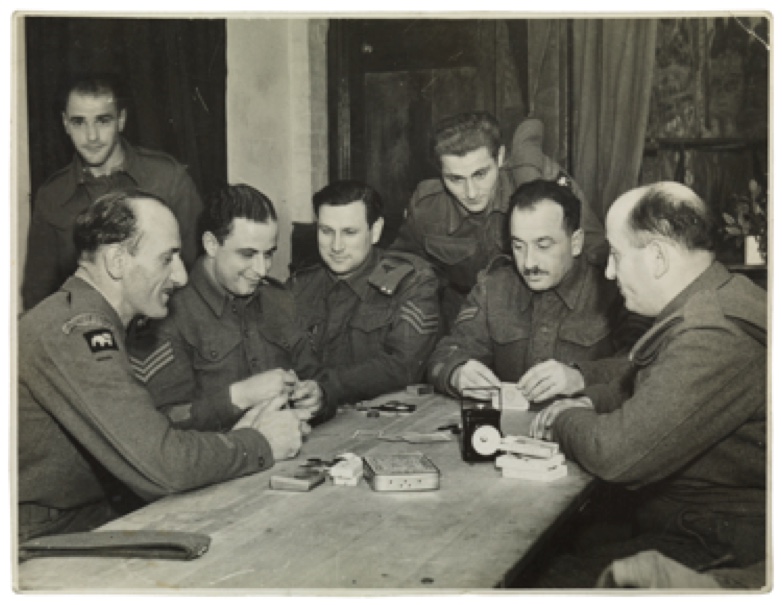
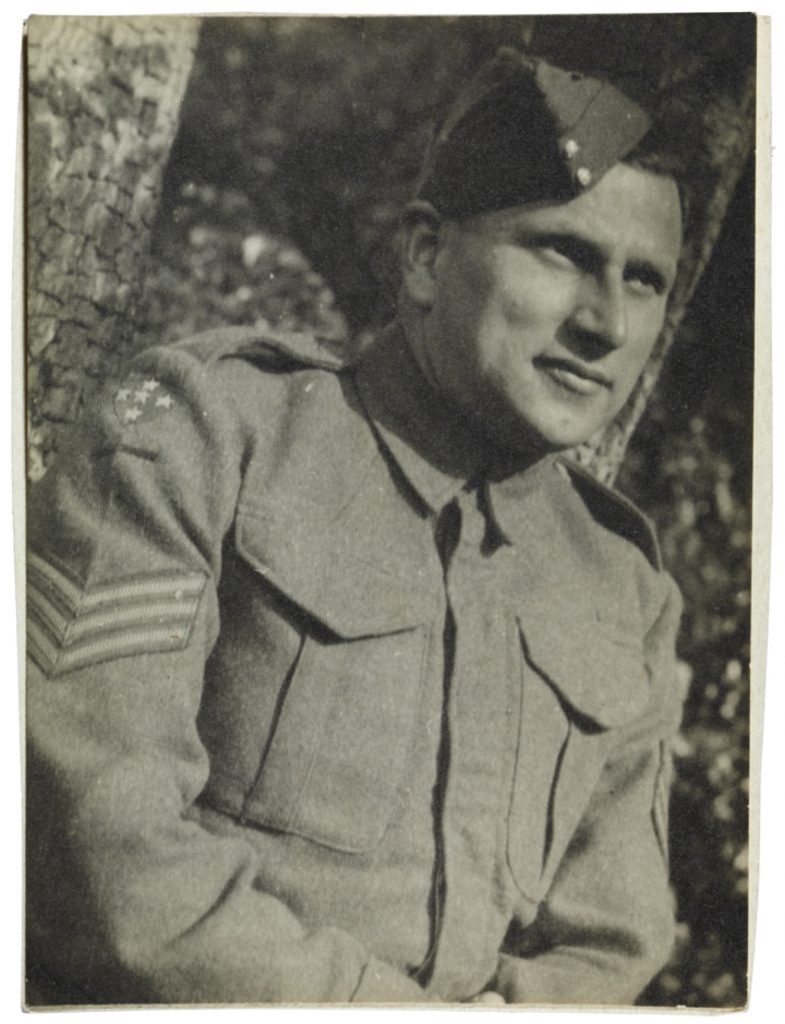
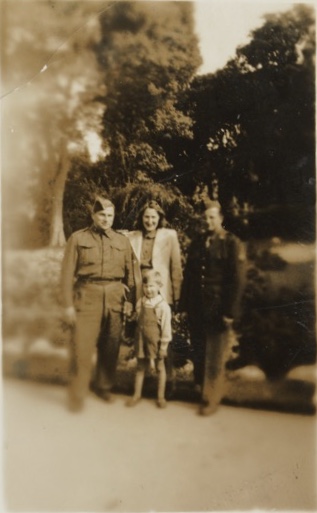
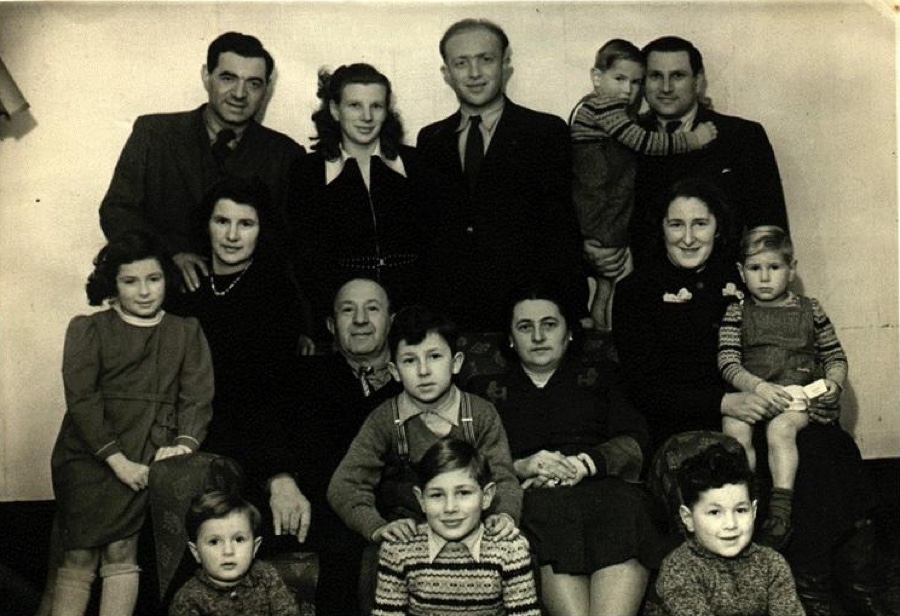
A new life in a new land: The USA
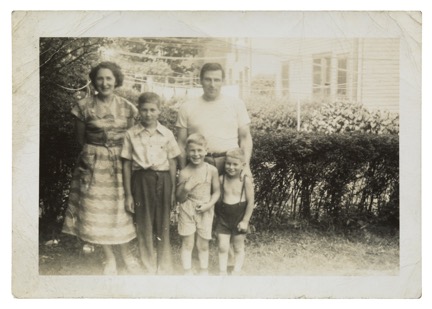
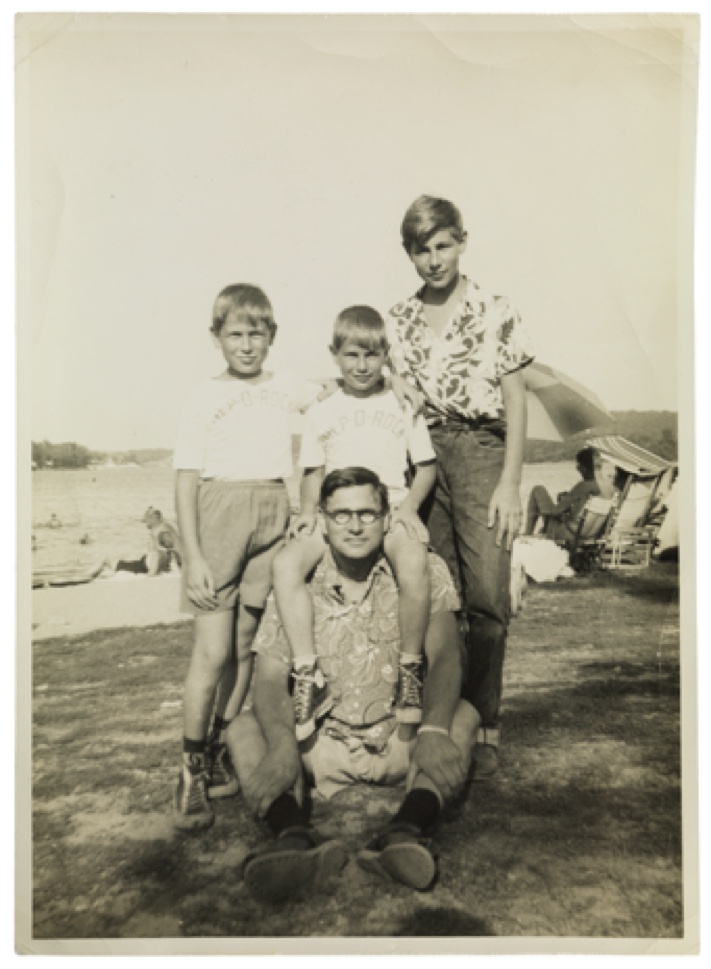
All photographs submitted by Winston Brill and family, 2017.

